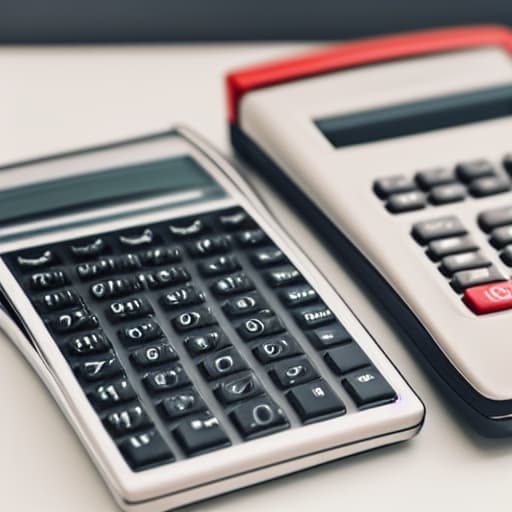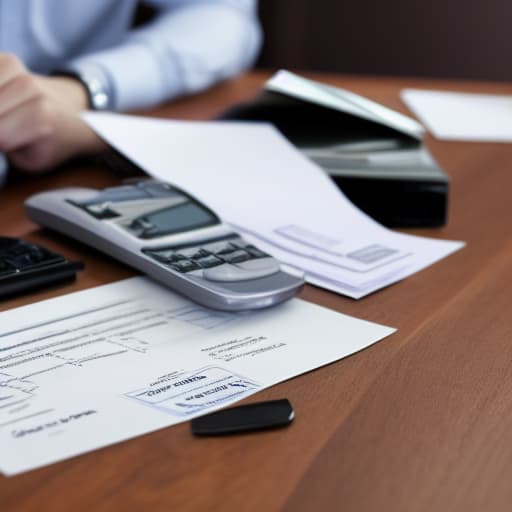Although debit and credit cards may have similar features, only credit card activity affects your credit report. You can decide if using a credit or debit card for a certain purchase is best for you by being aware of how your debit and credit cards impact your finances and credit score. This is especially useful if you use debit and credit cards frequently and want to raise your credit score without paying interest or other costs.
Fico Scores and Debit Cards
For large loans like mortgages, auto loans, and the majority of credit cards, the FICO score is crucial. You can see what credit score is needed to buy a car at Carmax, but the average is around 660.
However, getting a good number is dependent on how you manage credit, and debit cards are frequently just an extension of a checking account.
Payments are taken out of a checking account the same way a paper check would be. According to FICO, the following variables are taken into account when calculating your credit score:
- Maintaining timely debt payment
- Borrowing sparingly
- Having a borrowing history (the longer, the better)
- Utilizing several loan kinds
- Not rapidly accruing debt
Do Debit Cards Affect Credit Scores?
Debit cards are becoming increasingly popular, but there is some confusion about how they can affect your credit score. Here’s what you need to know.

Debit cards are linked directly to your bank account, so they don’t require a credit check like credit cards do. This means that using a debit card will not have any impact on your credit score, either positive or negative.
How Can a Debit Card Affect My Credit Score with the Credit Bureaus?
If you use your debit card to make purchases and then default on the payments, this could have a negative effect on your credit score. While it’s not credit card debt, it can still affect your credit file. Any time you fail to make a payment on time, it can damage your credit score. So if you’re using your debit card for regular purchases and paying off the balance each month, you shouldn’t have any problems.
But if you’re using your debit card for large purchases or cash advances, you should be aware that this could impact your credit score. If you don’t pay off the balance in full each month, it will show up as a negative item on your credit report and could lead to a lower credit score.
So if you’re planning on making any big purchases with your debit card, make sure you can pay off the balance each month. And if you’re ever worried about how your debit card use might affect your credit score, you can always check your credit report to see what’s being reported.
Can a Declined Debit Card Affect My Credit Score?
If you try to use your debit card and the transaction is declined, this will not affect your credit score. However, if you try to use your debit card and the transaction is declined because you don’t have enough money in your bank accounts to cover it, this could have a negative effect on your bank’s view of you and could lead to them closing your account.
You can easily follow the steps on how to fix a declined debit card, however, so don’t worry.
Can a Debit Card Be Used to Establish Credit?
The benefits of using a debit card instead of a credit card are that they don’t report to the major bureaus. You don’t have to worry about your credit utilization ratio or using revolving credit facilities for financing. This means you can keep your personal information private and not have it shared with anyone else!
There won’t be any negative implications on future loan applications because they don’t factor into this number! You can find out how much available borrowing power we have by dividing the total debt owed by our limit:
Appropriate Use of Debit Cards

It might be advisable to use a debit card if you want to:
Prevent Paying Interest
When a balance on a credit card isn’t paid off in full before the conclusion of the billing cycle, interest fees aren’t anything you’ll have to be concerned about.
Get Out Of Debt
If you’re currently in debt and don’t want to take out any extra loans, using debit cards might be your best bet.
Do Not Spend Excessively
Since you’re spending your own money rather than taking money out of your credit limit, those with a predisposition to overspend will find that sticking to a budget with a debit card is easier to manage.
How and When to Use a Credit or Debit Card
You could be better off utilizing a credit card when making a significant transaction that might almost reach your checking account’s limit. You run the risk of overdrawing your account if you make a transaction, withdraw money from an ATM, or schedule an automated payment that exceeds the balance in your checking account. Overdrafts and a lack of cash in your checking account, however, are not reported to the three major credit bureaus.
Occasionally, it could make more sense to calculate your leverage ratio and utilize your credit card for purchases than to risk having your bank account overdrawn. The total amount spent would be $1,532 when your bank’s fees and overdraft policies start to apply, or your transaction may be refused, for instance, if you spend $1,500 on a laptop but only have $1,450 in your checking account (and you’re charged a $32 fee if you overdraw your account).
If you stay under your credit limit, you wouldn’t be assessed an overdraft fee for the identical purchase if it had been made with a credit card. Making an on-time payment would also help you avoid paying interest on the balance if you paid it off before the beginning of your subsequent billing cycle.
How to Raise Credit Score Using a Credit Card
Credit cards, particularly if you use them frequently and pay off your bill in full each month, can help you build credit over time. Credit cards have a set credit limit that may give you additional freedom while making purchases or in the event of an unforeseen need.
Because debit cards deduct your purchases from your checking account, they may help you stick to your spending plan. Both debit card usage and credit cards can have an impact on your finances, even though only credit cards have a direct impact on your credit score.
When to Use Credit Cards
Using a credit card from a major credit card issuer could be recommended if you want to:
Boost Your Credit Rating
Your credit score can rise over time if you use your credit card a few times per month for items you can make and pay off in full each month.
Obtain Rewards Points
Your transactions may result in the collection of reward points, miles, or cash back if your credit card offers rewards points or cash back on specific purchases.
Prevent Overdraft Charges
You won’t have to be concerned about overdraft penalties as long as you keep under your credit limit.
Why Credit Scores Are Usually Unaffected by Debit Cards
Because you are drawing funds straight from your bank account to pay for purchases while using a debit card, your credit ratings are typically unaffected. You are essentially borrowing money from a line of credit when you use a credit card. Your issuer is covering the expense upfront, and you are in charge of making the repayments.

Your issuer will normally report activity, such as your payment history, to the three main credit bureaus as you use your credit card. That data is utilized by the agencies to create credit reports, which are later used to determine credit ratings.
You can gradually establish credit by constantly using your credit card properly. Making consistent, timely payments is an example of what that entails for building credit. However, that is distinct from debit cards. Debit card purchases often employ funds that are already in your bank account, so there is usually no payment history to trace or negatively report.
How to Improve Credit
Need assistance improving your credit? Here are a few alternatives to get you going:
Don’t Abuse Your Credit Card
If you don’t already have one, you can pick from a variety of styles. Find a solution that best suits your situation by conducting some research.
Just be mindful that requesting a credit card can impact your credit rankings. Too much debt can make your proportion of loan balances to loan amounts too high. Therefore, only apply for the credit you need, and think about first seeing whether you’re pre-approved.
Obtain Authorization to Use
The card you are given as an authorized user has all of your access to funds, but only if used responsibly over time. For both yourself and the primary cardholder’s credit scores to remain high, payments must be made on time every month-even. Small amounts can add up!
Take Into Account a credit-building Loan
Both commercial and private banking organizations offer installment loans that can help improve your credit.
If you are granted a credit-builder loan, the lender will put the loan amount into a savings account, and you will be required to make monthly payments for a predetermined period.
The lender releases the loan amount to you after receiving all of your payments, considering any potential interest. Your ability to build credit is aided by the lender’s customary reporting of your payment activities to credit agencies.
Transactions Using Credit or Debit Cards
With the exception of minor, temporary loans that could be a component of an overdraft line of credit, debit cards only use funds from your bank account. Thus there is no loan involved. While credit cards can damage your credit, they can also help you develop credit because they are unquestionably loans.
When using your debit card at a store, even if you choose “credit,” this does not make your debit card behave like a credit card. The money is still coming from your bank account, but credit card networks are handling the transaction. Even Visa provisioning service transactions can handle a debit transaction.
Different Credit Scores
Even though the FICO score may be the most significant, alternative credit scores are increasingly being used in lending choices, especially for those who are still working on establishing credit.
With one of those scores, it’s unlikely that you’ll be approved for a mortgage, but you may be able to obtain smaller loans that will help you build a stronger credit history. These alternative credit reporting agencies are also utilized for insurance premiums, employee screening, and other purposes.
Related Questions
Are Debit and Credit Cards the Same Thing?
Although credit cards and debit cards may have a similar appearance and share characteristics like 16-digit card numbers, expiration dates, and branded Visa or MasterCard logos, they differ significantly in key areas.
The primary distinction is that debit cards are connected to a bank account and deduct funds immediately (similar to a check). In contrast, a credit card does not draw money right away and must be paid back later, subject to any accumulated interest fees.
Who is Eligible for a Credit Card?
Most people can apply for and get a credit card, but the credit cards they are eligible for might not be as helpful if they have a history of poor credit or no credit. A secured credit card, where the credit line is secured by a deposit when the card is opened, is available to those with no credit or very bad credit. Higher credit ratings are required for more enticing reward cards.



